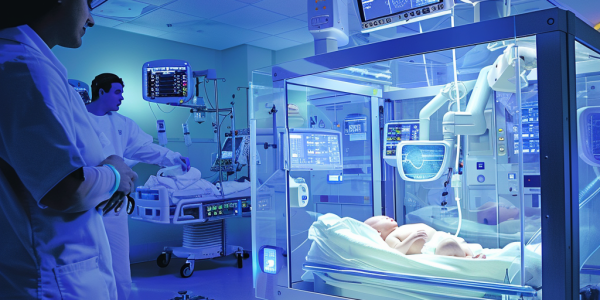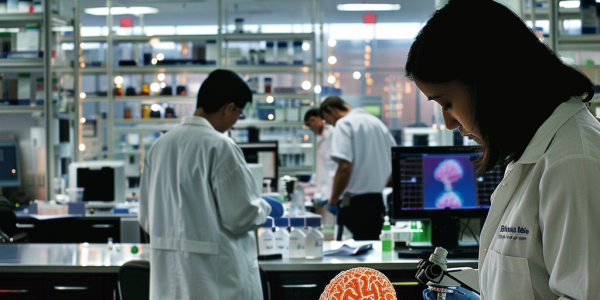New Study Reveals Glioblastoma’s Integration into Brain Circuits
Recent research from Heidelberg University reveals new insights into glioblastoma, highlighting how tumor cells integrate into brain circuits. This groundbreaking study, published in Cell, uncovers the complex interactions between aggressive brain tumors and nerve cells, paving the way for innovative therapies. Led by Dr. Varun Venkataramani, the research utilized modified rabies viruses to track glioblastoma cell behavior, emphasizing the need for ongoing studies to improve treatment outcomes for this challenging brain cancer.
Rising Stroke Incidence Among Young Adults: Urgent Need for Awareness and Prevention
The alarming rise in brain strokes among younger adults aged 30 to 40, increasing from 5% to 10-15%, highlights the urgent need for awareness and preventive measures. Factors such as poor diet, lack of exercise, and stress contribute to this trend. Recognizing stroke symptoms early and adopting healthier lifestyles can significantly reduce risks. Health authorities and the Indian Stroke Association are advocating for education and lifestyle changes to combat this growing health concern.
AI Revolutionizes Neurologic Monitoring in NICUs
A groundbreaking study by Mount Sinai researchers demonstrates the potential of AI in detecting neurologic changes in infants within NICUs using video data. Published in Lancet’s eClinicalMedicine, this innovative approach utilizes deep learning algorithms to provide continuous monitoring of newborns’ neurologic health, potentially revolutionizing care in intensive care units worldwide.
Sunbird Bio Unveils Groundbreaking Blood Test for Parkinson’s Disease with 86% Accuracy
Sunbird Bio has unveiled a groundbreaking blood test for Parkinson’s disease, achieving an 86% accuracy rate. Presented at the CTAD conference in Madrid, this innovative diagnostic tool utilizes aggregated alpha-synuclein proteins to improve early detection of Parkinson’s, addressing a significant gap in neurological diagnostics. This advancement could revolutionize patient care and pave the way for identifying other neurological disorders like Alzheimer’s.
Poor Sleep Quality Linked to Increased Dementia Risk in Middle-Aged Adults
Recent research highlights the alarming link between poor sleep quality and an increased risk of dementia in middle-aged adults. A study published in Neurology reveals that inadequate sleep can accelerate brain aging by approximately 2.6 years, raising concerns about cognitive health. Experts recommend strategies like consistent sleep schedules and relaxation techniques to improve sleep quality and potentially safeguard against dementia.
CD8 T Cells Identified as Key Indicators in Early Multiple Sclerosis Onset
Recent research highlights the crucial role of CD8-positive T cells in the early stages of multiple sclerosis (MS). Led by PD Dr. Lisa Ann Gerdes, this study, published in Science Immunology, utilized identical twins to uncover immune cell changes that may signal MS onset. The findings suggest that alterations in CD8 T cells could serve as early indicators of the disease, paving the way for new diagnostic and therapeutic strategies. Understanding these immune responses is vital for early intervention in MS, a condition that can lead to severe neurological deficits.
Lario Therapeutics Secures $6 Million Grant for Parkinson’s Disease Research
Lario Therapeutics secures $6 million funding from The Michael J. Fox Foundation to advance research on Parkinson’s disease. This grant will support the company’s preclinical program focused on CaV2.3 calcium channel inhibition, aiming to develop innovative treatments for millions affected by this neurodegenerative disorder.
Ovid Therapeutics Expands Scientific Advisory Board to Enhance Neurology Research
Ovid Therapeutics Inc. has expanded its Scientific Advisory Board with leading neurologists and neuroscientists to enhance its innovative pipeline for treating rare epilepsies and brain disorders. The board, chaired by Professor Robert Langer, aims to advance research on compounds targeting ROCK2 inhibition and KCC2 activation, potentially transforming treatment for complex neurological conditions.
World Brain Day 2024 to Focus on ‘Brain Health and Prevention’
Join the World Federation of Neurology on July 22, 2024, for the 11th annual World Brain Day, themed ‘Brain Health and Prevention.’ This global initiative aims to unite neurologists, patients, and advocates to address neurological disease risk factors and promote early detection. Participate in a free public webinar featuring experts from WHO and the World Stroke Organization. Learn about preventive measures and the importance of brain health in combating neurological disorders affecting billions worldwide.
New Migraine Treatment Atogepant Shows Promise in Reducing Symptoms and Medication Dependence
Recent advancements in migraine treatment highlight atogepant, a CGRP inhibitor, which has shown significant promise in reducing migraine days and reliance on pain medications. A phase 3 trial published in Neurology demonstrated its effectiveness in chronic migraine patients, offering hope for improved quality of life and innovative solutions for migraine management.










